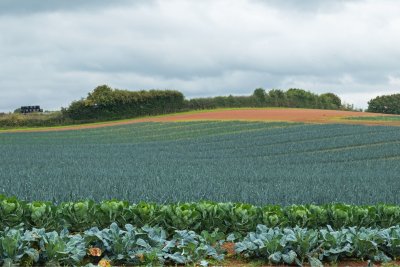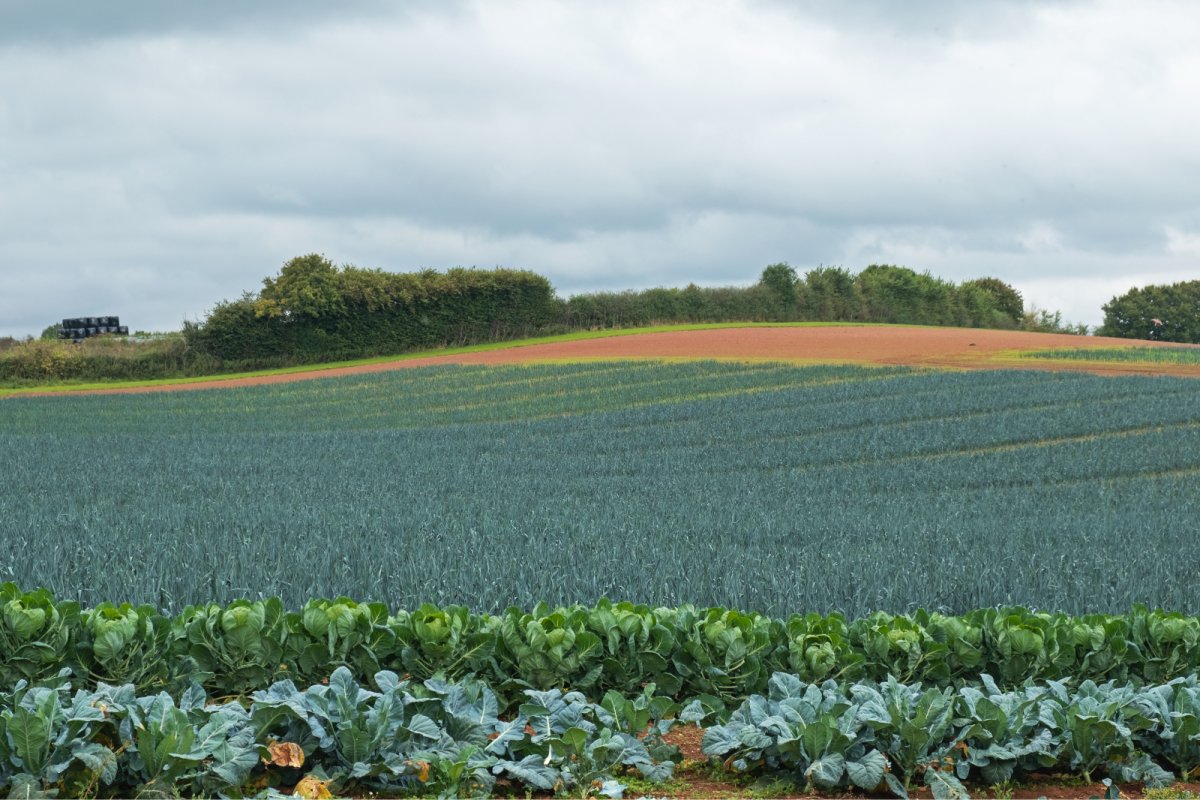 Organically grown leek crop in a Devon field, with cabbage and sprout plants in the foreground. Copyright: pjhpix | istock
Organically grown leek crop in a Devon field, with cabbage and sprout plants in the foreground. Copyright: pjhpix | istock

New council toolkit launched to unlock a fair and prosperous transition to sustainable farming
Sustain’s new resource includes guidance on how councils can use their planning powers to halt the spread of potentially unlawful factory farms, while growing a sustainable local food and farming economy.
Sustain has published its online toolkit for English councils to unlock sustainable farming via their planning powers.
Working with farmers and planning officers to develop this toolkit, Sustain found that most councils don’t include policies that support sustainable farming in their local plans, even though farming shapes around 70% of UK land. Instead, councils are giving the green light to more of the most polluting and least prosperous form of farming: intensive livestock units. Our toolkit has been designed to ensure agricultural developments positively impact communities, through vibrant and diverse local farming systems.
Why we created the toolkit
Most councils don’t use planning policy to its full potential. In fact, too often the planning system blocks local and sustainable farming but enables the spread of factory farming, which opens councils up to serious legal risk and has contributed to creating an environmental disaster in our rivers.
As a result of the relaxed planning system, the factory farm industry has enjoyed huge growth. Between 2016 and 2023, the number of factory farms grew by 20% in the UK. These produce up to 33,450 tonnes of waste daily. A lot of this waste ends up in rivers, but it’s not just a threat to our natural environment - it is creating a growing legal problem for councils.
In the last year alone, three cases have set a powerful precedent for the closer management of factory farms. Together, these cases show that councils need to take the cumulative environmental and climate impacts of factory farms into proper consideration when they decide whether to grant planning permission. If they approve applications without proper protection measures for their pollution, they can be challenged in court.
However, not a single factory farm application assessed by Sustain in factory farm pollution hotspots included the necessary environmental information in its impact assessment. This makes every one of these applications potentially unlawful.
The policies and resources in our toolkit mean that councils can make sure that factory farm applications are submitted to the highest standard and that applications are properly assessed. This not only protects councils from legal risk but will reduce the pollution and health impacts of local factory farms.
What the toolkit offers
This toolkit has been designed with the government’s National Planning Policy Framework (NPPF) in mind. Our policies are clearly tied to the individual goals of the NPPF and connect to the overall goal: the promotion of sustainable development.
Our toolkit provides councils with best practice options for supporting local sustainable farming by removing some of the planning barriers farmers told us about in our research. These practical policies will help farmers to diversify their businesses, create new jobs, and grow more local and sustainable food. They will also:
- Allow farmers to fully capitalise on the long-term economic opportunities of their land and their farms, creating more rural jobs and more resilient businesses.
- Improve the local environment, boosting biodiversity and reducing pollution so rivers can recover.
- Grow a thriving, connected sustainable local food system which produces more healthy food and is resistant to market and climate shocks.
- Help councils achieve their climate commitments (including reducing pollution), a prosperous rural economy and healthy communities.
- Create a fair and prosperous transition to farming systems which align with the local environment and needs of the local community.
The toolkit can be used by all English Councils regardless of what stage of local planning they’re in. It provides guidance for local plan policy, supplementary planning documents and a checklist for assessing applications.
Next steps
Visit the Integrating sustainable farming into your local plan: Toolkit for English Councils.
Sustain is here to support Councils. Contact sam@sustainweb.org and vicky.gerrard@sustainweb.org and let us know how we can help you.
Food for the Planet: Helping local authorities to tackle the climate and nature emergency through food.
Sustain
The Green House
244-254 Cambridge Heath Road
London E2 9DA
020 3559 6777
sustain@sustainweb.org
Sustain advocates food and agriculture policies and practices that enhance the health and welfare of people and animals, improve the working and living environment, promote equity and enrich society and culture.
© Sustain 2026
Registered charity (no. 1018643)
Data privacy & cookies
Icons by Icons8







